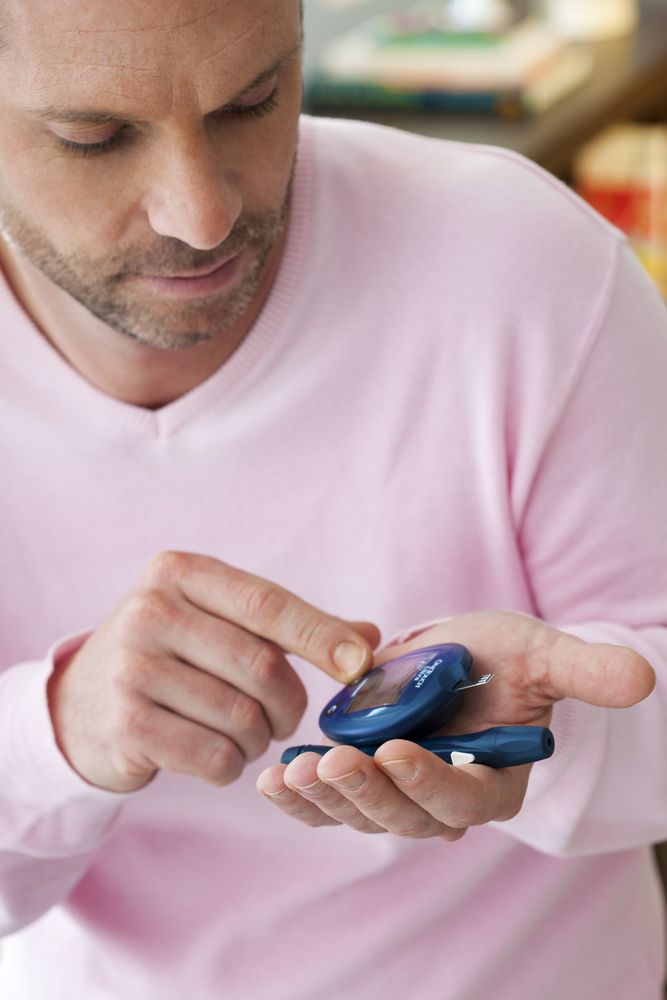- Clinical Technology
- Adult Immunization
- Hepatology
- Pediatric Immunization
- Screening
- Psychiatry
- Allergy
- Women's Health
- Cardiology
- Pediatrics
- Dermatology
- Endocrinology
- Pain Management
- Gastroenterology
- Infectious Disease
- Obesity Medicine
- Rheumatology
- Nephrology
- Neurology
- Pulmonology
Erectile Dysfunction Doubles Diabetes Risk
ED may raise the risk of diabetes, coffee may lower it, and the evidence against sugary drinks continues to mount.
© Image Point Fr/Shutterstock.com

Middle-age men with erectile dysfunction (ED) may be at increased risk for type 2 diabetes mellitus (DM). Coffee drinking may reduce the risk of DM by dint of its anti-inflammatory effects. And there’s new evidence that regular consumption of sugary drinks is associated with type 2 DM.
Please click here to go to next page.
ED and Diabetes Linked in Middle-age Men
• The risk of DM may be twice as great in men who have ED as in men who do not, according to the results of a new cross-sectional study.
• Researchers collected data for 4500 men, age 20 years and older, who participated in the US National Health and Nutrition Examination Survey from 2001 through 2004.
• The men answered a single validated question about ED.
• The researchers used logistic regression analyses to investigate the relationship between ED and undiagnosed hypertension, hypercholesterolemia, and DM.
Please click here to go to next page.
Middle-age Men Need Screening for ED
• No association was seen for undiagnosed hypertension or undiagnosed hypercholesterolemia.
• For the average man aged 40 to 59 years, the predicted probability of having undiagnosed DM increased from 1 in 50 in the absence of ED to 1 in 10 in the presence of ED.
• The researchers suggested that men with ED should see their doctors to ensure they are properly screened for DM and that physicians be vigilant in obtaining sexual histories in middle-aged men and screening those with ED for DM.
Please click here to go to next page.
Coffee Drinking May Reduce Diabetes Risk
• Coffee drinking may reduce the risk of DM by mediating oxidative stress and inflammatory biomarkers, according to an observational study.
• Researchers selected a random sample of more than 3000 men and women age 18 years and older who filled out dietary questionnaires, including questions about coffee drinking frequency.
• Blood tests measured levels of inflammatory markers and antioxidant levels.
Please click here to go to next page.
Coffee Drinking Has Anti-inflammatory Effects
• At 10-year follow-up, 191 incident cases of DM were documented (incidence: men, 13.4%; women, 12.4%).
• After various adjustments, the odds of developing DM was 54% lower in persons who consumed 250 mL of coffee (about 1.5 cups daily) than in abstainers.
• The risk of DM was greater in those who had higher serum amyloid-A levels, an inflammatory marker.
• The anti-inflammatory effects of several coffee components may protect against the development of DM.
Please click here to go to next page.
More Research Links Sugary Drinks with Type 2 DM
• More evidence shows that continued consumption of sugar-sweetened beverages leads to a greater likelihood of developing type 2 DM.
• An international team of researchers set out to assess whether habitual consumption of sugar-sweetened drinks, artificially sweetened drinks, or fruit juice was associated with the incidence of type 2 DM.
• They conducted a systematic review and meta-analysis of 17 studies to estimate the 10-year risk attributable to sugar-sweetened drinks in the US and UK.
Please click here to go to next page.
2 Million New Cases of Diabetes in US from Sugary Beverages
• The researchers estimated that 2 million new cases of type 2 DM would occur in the US and 80,000 new cases in the UK between 2010 and 2020 related to the consumption of sugar-sweetened beverages.
• After adjustments for body weight, even for thin or normal weight persons, 1 sugary drink per day was associated with a 13% increased risk of type 2 DM.
• The association between artificially sweetened drinks or fruit juice and type 2 DM was less evident.
• The researchers suggested that substituting sugar-sweetened drinks with artificially sweetened drinks or fruit juice is unlikely to be the best strategy in reducing the risk of type 2 DM. Water or other unsweetened beverages are better options.
Please click here to go to next page.
Take-home Messages:
• ED should be a trigger to initiate DM screening, particularly among middle-aged men.
• Coffee may play a role in decreasing inflammation that increases the risk of DM.
• Habitual consumption of sugar-sweetened beverages may lead to a substantial number of cases of new-onset type 2 DM.
